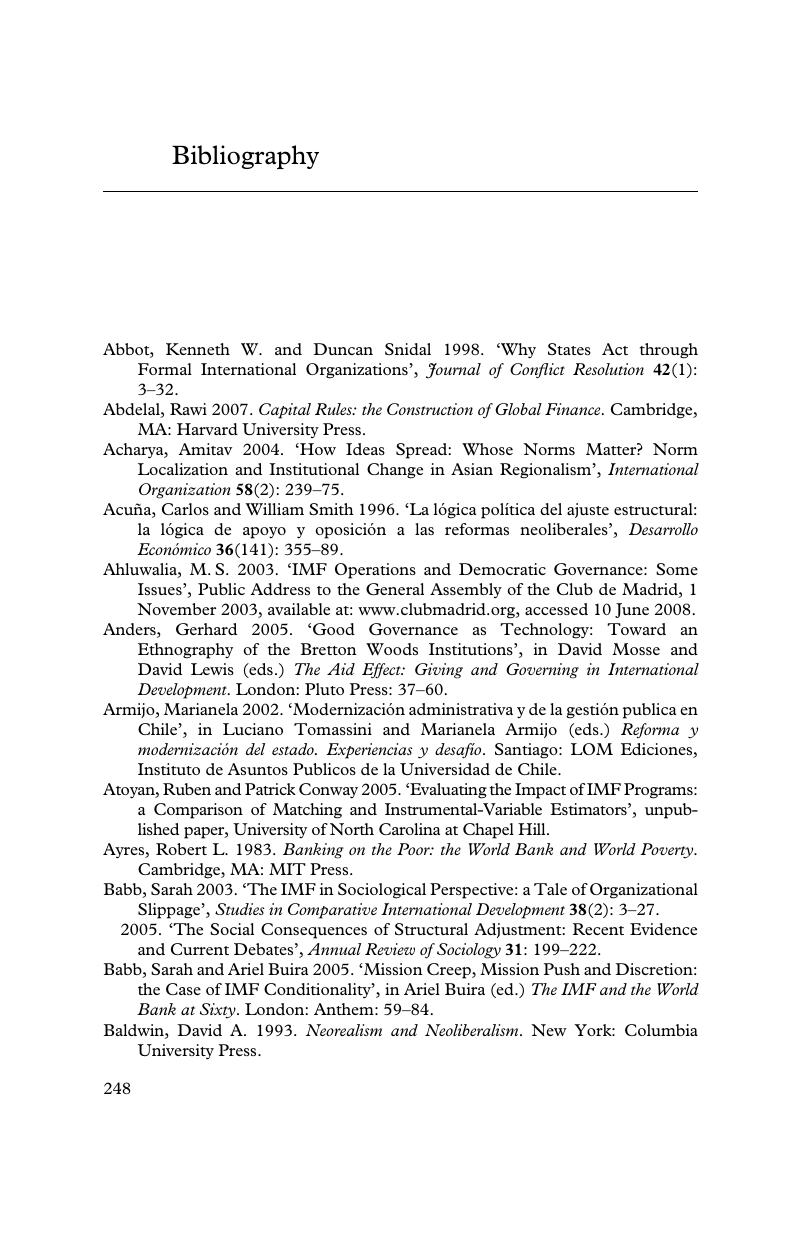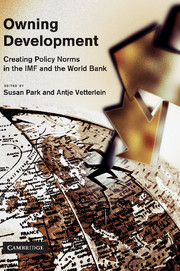Bibliography
Published online by Cambridge University Press: 02 December 2010
Summary

- Type
- Chapter
- Information
- Owning DevelopmentCreating Policy Norms in the IMF and the World Bank, pp. 248 - 280Publisher: Cambridge University PressPrint publication year: 2010

